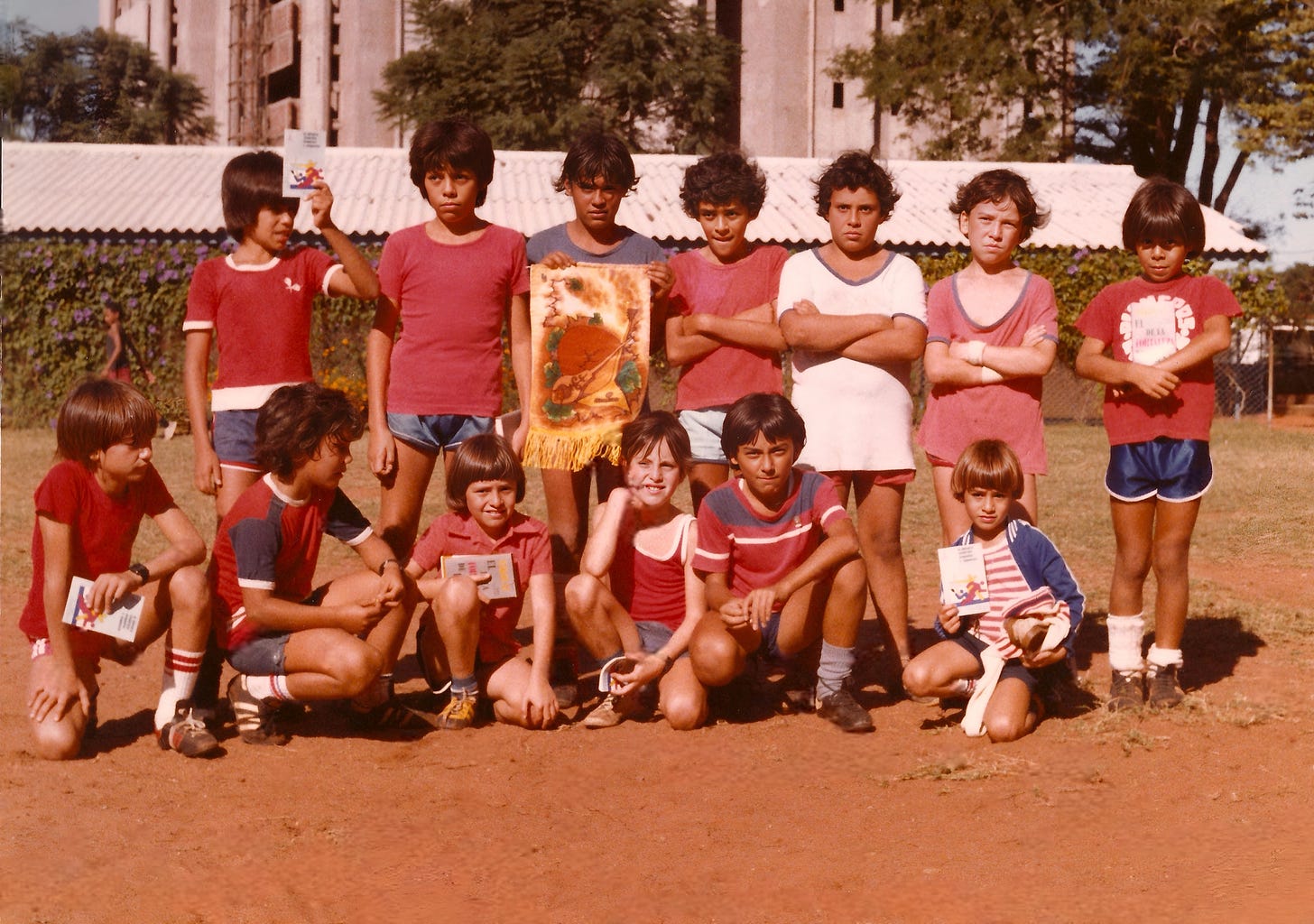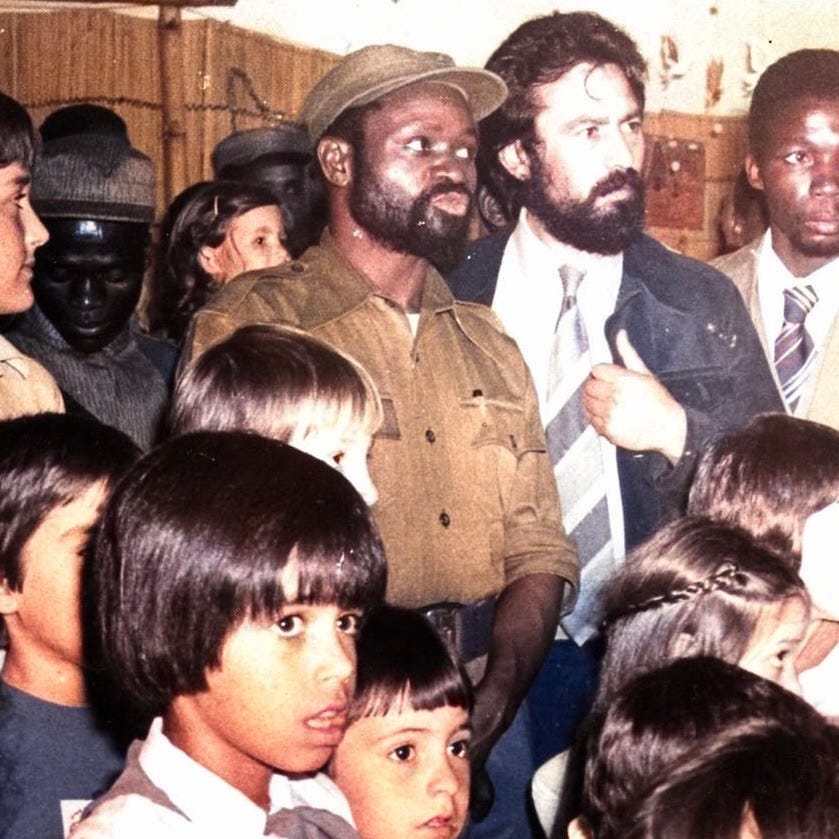Growing up, I had a group of friends I did everything with. Most boys have them, but the circumstances of this particular group were unique. This friendship factor became the source of a valuable superpower I've used for the rest of my life. Although the circumstances of this friend group were unique, the lessons I learned have proven to be universal.
We were all Chilean kids living in Mozambique, a country in southern Africa. We were also exiles whose parents had to leave Chile after a brutal military coup by General Augusto Pinochet. All of our parents were imprisoned, tortured, and lucky to be alive. All of them were professionals who chose to come to Mozambique to help rebuild an economy that was effectively paralyzed by the mass exodus of the people who used to run it before its independence.
Another important piece is that most of us had already lived in one or two other countries between the exile and arriving in Mozambique. I came to Mozambique at age seven, my fourth country and third continent. My mom is Russian, and my dad is Chilean, so I have spoken Russian and Spanish since birth. I had to learn Portuguese upon arrival, and a year later, I started to learn English when my parents transferred me to an international school. So, I learned four languages by the age of nine.
In other words, stability is something I didn't experience as a child. I was so culturally confused that my dad told me he couldn't get me to have a conversation in public for the first year after our move. Between the trauma of seeing my father put in a concentration camp, spending several months in a refugee facility, and moving around to dramatically different cultures, all I wanted was to fit in somewhere and to feel normal. This extraordinary circumstance and out of extreme necessity, is where I learned friendships. It blossomed into an ability to connect, bond, and value people deeply.
We now live in a unique era of endemic loneliness that accelerated dramatically in the last few years. When we moved to the US ( my sixth country), I noticed that extraordinary prosperity comes at the price of weakened friendships. The typical American knows little about their neighbors, and interactions are mostly limited to a smile and wave while pulling into the garage. Upward mobility translates into a lack of community as people pursue a "career path" – a euphemism for going from job to job. With this professional mobility, investing in people is, at best, a temporary priority that is limited in depth. Generational ties are weak for the same reason. Geographic mobility means children often see their grandparents a few times a year.
The atomization of society has accelerated dramatically due to the rise of social media and COVID-19. Mental health has plummeted, and loneliness and anxiety are now paralyzing millions. If human history were 24 hours, we'd have doubled our longevity but forgotten how to build community in the last three minutes of the day.
We're still learning how this will affect us long term.
In Mozambique, our friendships went beyond the usual out of necessity. We spent our days together, whether in school or roaming the streets of Maputo without supervision. Our parents often gathered to share their painful stories, and the community frequently met for parties, beach outings, and road trips. I was part of a children's folk group and fell in love with music, which later translated into a successful singing career. We even sang for Mozambique's first president, Samora Machel. These unusually deep immersive friendships and consistent community was foundational for me. It gave me confidence, belonging and what is now called anti-fragility - the ability to become stronger through hardship.
Little did I know I was learning skills that would eventually help me build communities, develop multiple careers, and coach business leaders.
The good news is that anyone can learn the same principles and build those skills in an environment where so many people have lost these valuable qualities:
Coping with trauma: Studies show that the quickest way to overcome trauma is to have a few true friends. Our group had gone through horrific trauma and were helping each other heal. There's still enough hardship to go around, and learning how to build deep friendships is demonstrably more effective (not to the exclusion of) than therapy.
A safe place to grow: We can learn new skills faster when we do hard things with people we love. Instead of networking for professional opportunities, be a good friend to the people you want to solve difficult problems with in life and work. You'll discover that adding value to people's lives over the long haul will grow your character and your skills, attracting your network to you.
Shared values: Humans are tribal by design, and shared values hold tribes together. If you can't find a tribe that shares your values, start one and love them hard. Stand for a clear set of values that communicates the idea that "people like us do things like this." Shared values create joy, passion, and creativity that is equally attractive in a family, non-profit or business.
Love fuels human flourishing: Both modern science and ancient wisdom point to this essential truth. Learning to love requires doing life with people in a way many people have lost track of. Building an environment where love is the main currency is the secret to health, strength, wealth, and longevity in every possible way. Love is the ultimate meta-skill.
Ingrained in me during the years of living in one of the poorest countries on earth and being part of a community of exiles who had lost everything - the power of deep friendships came as an unexpected gift. I still love that group of boys, although we haven't seen each other in decades. We are having a reunion in Mozambique in 2025, where we'll also hang out with the kids of the Ascend Academy we started there a few years ago. My childhood friends taught me something that I now coach others in at Xponential – the skill of nurturing friendships that make us feel fully alive, ready to take on the world, overcome obstacles, heal from trauma, and thrive.
If this resonates with you, you'll enjoy my next free webinar on September 14th at 12 PM CST: "Anatomy of Strong Friendships." We'll do a deep dive into how to develop the character that supports great friendships. Spots are limited and fill up quickly; you can claim yours here.
What you may have missed: If you enjoyed this post, check out my livestream with Brandon Knicely about finding your tribe, moving on from toxic relationships, and finding mentors. [Click here.]
What I'm watching: "Fly Me to the Moon" – I love a good, optimistic American rom-com, and this one does not disappoint.
Please mark your calendars: Our next live stream on Wednesday, July 24th, at 1 PM CST is with my brother-in-law Ty Thompson. He is a past president of the Colorado PGA, speaker, and consultant. We'll talk about building a solid network, proactive growth, and how to execute a plan. We are streaming on YouTube, LinkedIn, and Facebook simultaneously. Check event times on these platforms; sometimes they don’t reflect accurately - the correct time is above. Join in and share your thoughts.
The Xponential Score: I'd like to give you access to a free, science-based personalized score I use to help professionals gain extreme clarity on where they are and what they need to focus on. [Gain access to it here.]







